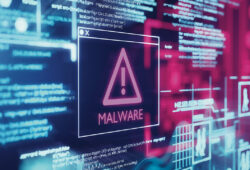Electronics Purchasing & Recycling That Support Environmental Goals
It’s difficult to imagine a day without electronics. Cell phones, tablets, computers, printers and everything in between infuse our personal and professional lives with convenience and productivity. Yet when their disposal is improperly managed, toxic materials in electronics such as lead, nickel, zinc, barium and chromium can endanger air, water and soil.
America generates more electronic waste than any other country, and only about a quarter of it gets recycled. The problem is not that products can’t be conserved, repurposed or recycled—nearly 100 percent can—but, that so few are. For healthcare organizations looking to reduce their environmental footprint and implement sustainable policies, electronics management is an area that deserves your green team’s attention.
Reducing electronic waste involves more than recycling batteries or ink cartridges. It requires seeking out products that are energy-efficient, sustainably designed and easily recycled—conserving energy while maximizing their lifespan. Yet most IT purchasers don’t have time to sift through hundreds of products to find the greenest options.
Sustainable Choices Made Easy
Enter EPEAT, or Electronic Product Environmental Assessment Tool, a free online registry that equips buyers to support environmentally preferable purchasing initiatives. Launched in 2006, the global rating system makes it easy to find and select eco-friendly electronics by ranking products on a sustainability scale, which considers environmental attributes such as raw material extraction, design, packaging, repair and maintenance, energy conservation, and longevity.
The ecolabel currently includes products ranging from desktop computers to televisions to mailing machines. Over 65 manufacturers have registered their products with EPEAT, and the registry offers thousands of products across 42 countries. When purchasers buy EPEAT-registered products, they choose electronics that are longer lasting, less toxic, more energy efficient and easier to recycle.
Each EPEAT-registered product receives a classification—bronze (green), silver (greener) or gold (greenest)—based on how many global sustainability standards it meets. Manufacturers also undergo ongoing verification to ensure electronics continually reach environmental benchmarks. When purchasers search the registry, they discover a wealth of green products to meet an organization’s needs. (Many consumers consult the registry when deciding which electronics to purchase for personal use as well.)
Compared to their less sustainable counterparts, the number of EPEAT-registered products purchased since 2006 has eliminated 565,142 metric tons of hazardous waste from our planet’s ecosystem, according to the EPEAT’s website. Put another way, that’s the weight of 56 Eiffel Towers. Choosing these products will also reduce millions of metric tons of greenhouse gases, conserve billions of kilowatt hours of electricity, cut down on water pollution and reduce material usage by millions of metric tons.
“EPEAT criteria address environmental, health and wellness issues associated with common IT products,” says Nancy Gillis, CEO of the Green Electronics Council. She explains that it’s an easy-to-use ecolabel for any organization, but it aligns especially well with hospitals. “The Green Electronics Council supports healthcare systems in their procurement of EPEAT-registered IT products and their commitment to the health and safety of the users of these products, as well as the workers who make these products,” Gillis says. “Healthcare systems recognize that using sustainable IT is not only good for people, but it’s also good for the planet.”
HeathTrust contracted manufacturer products located on the EPEAT Registry because of their Energy Star certifications include HP Inc. and Dell. These products are available for purchase through contracted distribution partners CDW Government LLC and Insight Direct USA. The distribution partners can assist members in specifying products on the EPEAT Registry that support the member’s sustainable initiatives.
A Greener Life Cycle
Purchasing green electronics is just one step toward sustainability. Equally important is managing these products through end of use. “Look for products designed for longer life cycles with lower energy consumption,” says Cathi Coan, CEO of Techway Services, an electronics recycler founded by Coan in 2004 in Dallas, Texas. Techway is a HealthTrust diversity supplier.
Users can also extend a product’s life through upgrades and maintenance instead of replacement. However, when ready to replace, there are three ways to avoid waste: giving or selling it as-is to someone else; finding a buyer or purpose for its component parts; or partnering with an e-waste recycler. Conversely, unregulated disposal of electronics not only increases waste, but it also potentially leaches toxic materials like lead and mercury into the environment. Coan recommends partnering with a reputable electronics recycling firm to guarantee “proper and environmentally friendly disposal of end-of-life electronics while meeting all security requirements to protect sensitive patient and employee information.”
By using these best practices, hospitals save costs by reducing energy and the need for new products. Sustainable electronics management also benefits the environment by reducing waste, greenhouse gas emissions and toxic chemicals, as well as cutting down on the use of natural resources.
Share Email Environmental Preferable Purchasing, Information Technology, Q1 2018





